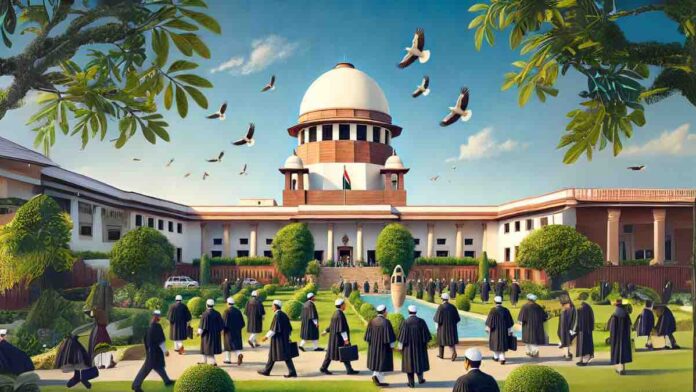The Supreme Court of India, in a ruling delivered by a Division Bench comprising Justice Sudhanshu Dhulia and Justice K. Vinod Chandran, restored the Trial Court’s order summoning two individuals as additional accused under Section 319 of the Code of Criminal Procedure, 1973. The Court held that the High Court erred in setting aside the
To Read More Please Subscribe to VIP Membership for Unlimited Access to All the Articles, Download Available Copies of Judgments/Order, Acess to Central/State Bare Acts, Advertisement Free Content, Access to More than 4000 Legal Drafts( Readymade Editable Formats of Suits, Petitions, Writs, Legal Notices, Divorce Petitions, 138 Notices, Bail Applications etc.) in Hindi and English.




